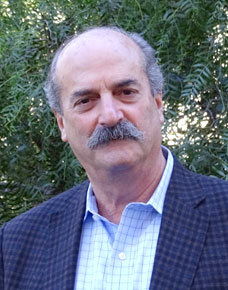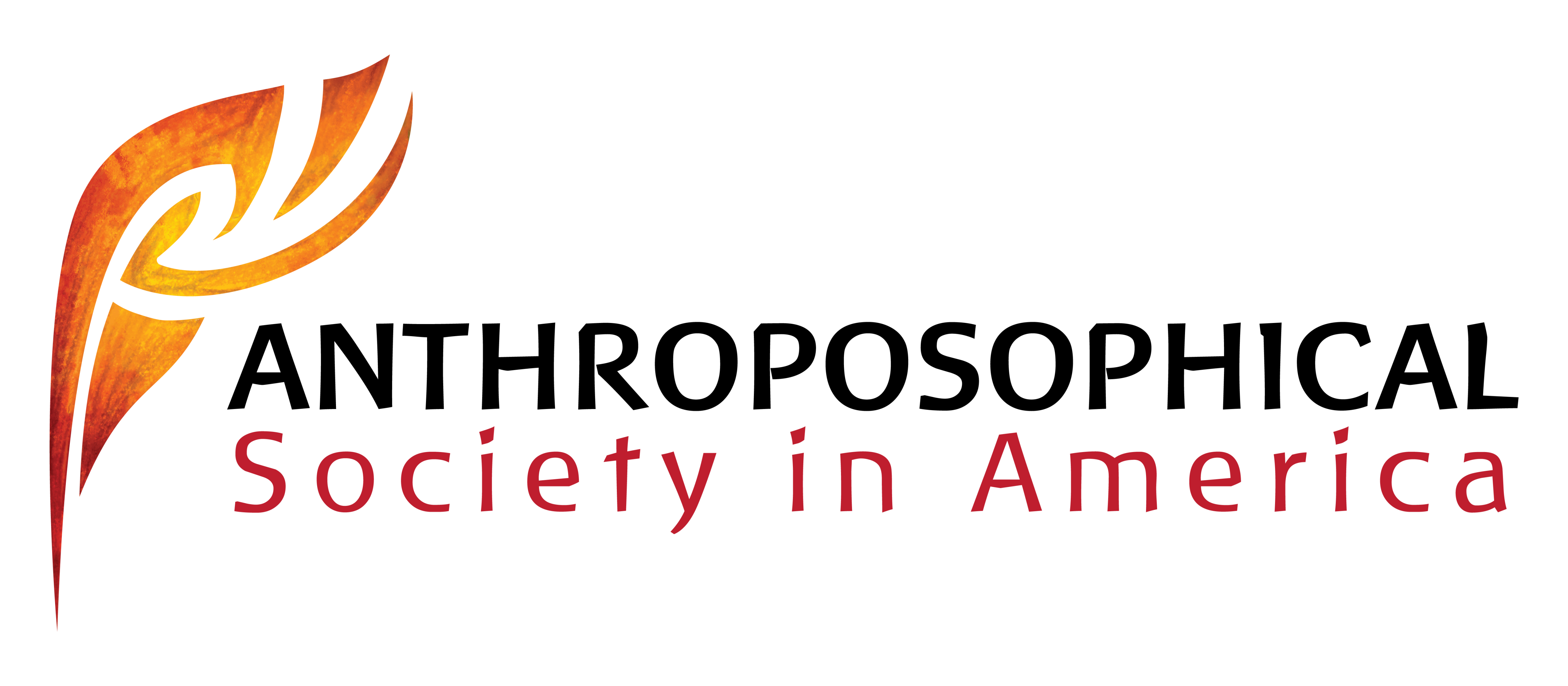From the General Secretary: “the spirit world – a true commons”
From the General Secretary
February 2019

Walls, great and small, are a sensitive topic these days, and even more meaningful are the boundaries that walls make visible. Physical boundaries separate us: rivers, mountains, or coastlines, and each one of us is apart from the others. Boundaries may also be negotiated delineations, in essence territorial, recorded by maps, fences or walls. Such boundaries are markers of complex cultural, political, and economic history. But the concept of boundaries in the world of the spirit—imagination, ideation, inspiration, and intuition—makes no sense to me. The spirit world was and remains a true commons, present and accessible to all, and is continually nourished by mindfulness of it and respect for it. This seems true regardless of how each of us may or may not imagine or even experience that it is present and evolving. And it is important to remember that not everyone considers spirit in this omnipresent way; such a view may seem foreign or even threatening, as if some boundary were breached.
Boundaries have much to do with how we experience identity. Who we are as individuals and how we identify ourselves is first and foremost social in the cultural sense and spiritual in that our self-knowing arises in inner freedom. Because of the possible tension between the social and the spiritual, the right of self-determination has opened an important reconsideration of identity.
Identity and ideas are essentially spiritual in nature and live in the realm of experience. Yet, they have been framed within a paradigm of materialistic scientific thinking that separates and reifies everything. If this were not the case how is it that identity theft, intellectual property, artificial intelligence, and the productizing of personal origins are such prevalent matters now? As real, contested, and complicated as such concepts are, they make no sense from a spiritual perspective—another reason that spirit can seem so disconnected or irrelevant in our current time.
But spirit is more relevant than ever to healing ourselves, our relationships, our capacity to serve others. The gateway, or permeable boundary, between spirit and our social geophysical world is the presence of soul, our capacity to know ourselves, experience compassion, and to remain grounded and open to and interested in each other. This is challenging work, especially if someone is in opposition, but it is what is being asked of us if we are not to become enclosed within boundaries or walls of our own making. Just as the soul is a bridge between the spiritual and the quotidian, each of us now can serve as a healing bridge that supports reconnection across boundaries. As a friend and engineer said: “You better understand the nature of geology and culture at both ends of the bridge as well as what you are crossing if you don’t want to create a bridge that costs a karmic toll.”
In the spirit of serving as social bridges, the Council of Anthroposophical Organizations, a committee of the General Council, recently hosted its second workshop for those who serve as spokespersons for organizations connected to anthroposophy. The workshop title is “Finding Our Voice” and its intention is to support the attendees in connecting with and finding a way to articulate their own authentic experience within anthroposophy. It is guided practice in various modes. The first gathering, instigated by Robert Karp of the Biodynamic Association and Claus Sproll of Camphill, both members of the CAO, was held in Spring Valley, NY. It was well attended and much appreciated, and we learned a lot from the participants that informed the second gathering in San Francisco. The next opportunity is planned in conjunction with the Association of Waldorf Schools of North America annual conference in Philadelphia in June 2019.
For the San Francisco gathering, I drafted a set of guiding thoughts and reflective frameworks for those communicating about anthroposophy in the public, whether informal, work related, or speaking with the media. There was a sense from the attendees that these thoughts could be broadly useful in communicating about anthroposophy. They are offered here in the spirit of the creative commons. Work with them, practice them with willing listeners in any way that feels right for you. And, be sure to ask for and gratefully receive honest feedback. In the process you may find a deeper connection with your own experience—one piece of the magic of supporting another person in connecting with their own:
- Upon first meeting, you simply cannot know someone else’s experience or reality. Therefore, make no assumptions. Instead seek permission and ask out of real interest.
- Have you understood the inquiry or the need? Are you clear on what you are trying to say and why?
- Can you answer the following question: “Did you hear what you just said?”
- Self-knowledge, self-knowledge, self-knowledge: know that this is made possible by and through the presence of others.
- Wake up to and own unconscious bias.
- Be prepared to own (be responsible for) conscious bias.
- Know what your relationship to authority and power is and acknowledge privilege.
- Unacknowledged privilege is socially destructive.
- Moral tact—inner freedom and that of every other individual is sacrosanct.
- Listening to understand has great power—sometimes twice as much as speaking.
- “Know when to hold ‘em and when to fold ‘em.”* And when it may be possible to reengage. [ * This is the title to a song written by Don Schlitz in 1976, and made famous by Kenny Rodgers in 1978. In 2018, it was selected for preservation in the National Recording Registry by the Library of Congress as being “culturally, historically, or artistically significant.”]
These guidelines are really social tools, but social in a way that is centered in self-knowledge and awareness, and not directive. This is our task as stewards, as moral beings with the responsibility of bridging the needs of the earth, each other, and the essential non-material life processes that connect spirit and matter in service to both.
These practices and their attendant awakening shift in consciousness are an essential aspect of any system change we might want to bring about—whether in how we regenerate the earth, find a way toward peaceful coexistence as nations, or rediscover the value and recognize the spirit of every human being. Such a shift presents a lofty goal, and each of us is free to find our way to it. Even better, we find a social framework for every person to know and share what is in their hearts about what the future is asking and how we want to shape it. Regardless of whether anyone agrees on what it actually looks like, we still have to build it together. The alternatives are bleak.
This is a significant task and the compression of time forces hard choices. While the call to awaken has a long genealogy across streams and boundaries, connecting spiritual consciousness through the soul with work in the material world of modern Western culture is a particular task to which anthroposophy is well suited. If we are to take on the powerful forces of late-stage materialism, with its cold calculations and social division, we need to be clear what we stand for and how we want to practice it—the value of being human above all. While boundaries are ours to negotiate and bring new consciousness to, walls are anathema to the flexibility of soul so essential to the citizen of the future. I hope we can bridge boundaries and cross divides toward this end. In the process, spirit will make itself visible.
John Bloom

Thanks, John. So true. Forgiveness, fear, boundaries are the ultimate cause of the chaos in the world today.
Thank you for the “expansively stimulating” insights.
Forgive me if I may not understand the above comment the way it is intended,
but It seems more fitting, to say that (Lack of) Forgiveness is an “ultimate cause” of chaos
and that boundaries can be and are sometimes necessary but also can be and are sometimes destructive, depending upon their meaning/context in the surrounding circumstances and or conditions; Like a “gut” reaction to the word “Capital”, a reaction to the word “boundaries” require that spiritually(healthy?) thoughtful discernment is cultivated.
Placed here in good faith, with the intention to help with thoughtful reflection on the amazing & very helpful insights of the article’s author.